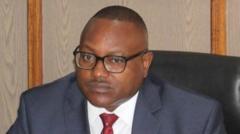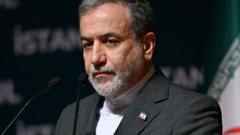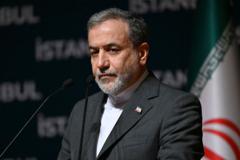Zambia's foreign minister has cautioned diplomats against public criticisms following the U.S. ambassador's call for accountability regarding the country's health aid theft.
Zambia's Foreign Minister Issues Warning to Diplomats Over Aid Theft Claims

Zambia's Foreign Minister Issues Warning to Diplomats Over Aid Theft Claims
Tensions rise as Zambia's government responds to U.S. concerns about aid misappropriation.
Zambia's Foreign Minister Mulambo Haimbe has voiced discontent over diplomatic communications through the media, following alarming revelations by U.S. Ambassador to Lusaka, Michael Gonzales, regarding the "systematic theft" of U.S.-donated drugs in Zambia. Haimbe's comments signal an increasing dissatisfaction with diplomats who he believes have bypassed traditional channels for official discourse, which he asserts could compromise diplomatic protocols and respect.
The tensions escalated after Gonzales held a press conference last week, announcing a decrease in U.S. health aid by $50 million due to the alleged misappropriation of critical medicines. This decision came after numerous inconclusive meetings with Zambian officials about the issue.
Haimbe’s remarks were indirectly aimed at Gonzales, who publicly criticized the lack of action from the Zambian government and stated that he felt compelled to announce the aid cut following abandoned discussions regarding the allegations.
Zambia's Home Affairs Minister Jacob Mwiimbu confirmed the completion of a forensic audit related to the theft and noted that significant law enforcement actions had been taken, including the arrest of 75 individuals and a countrywide raid of over 400 health facilities linked to the corruption. He emphasized that there would be "no sacred cows" in the investigation.
Gonzales also mentioned that inspections in more than 2,000 pharmacies indicated rampant selling of misappropriated U.S. medical supplies. While Health Minister Elijah Muchima acknowledged that the issue had historical roots predating the current administration, he reassured citizens that sufficient stocks of medicines were available, indicating no immediate risk of shortages despite U.S. funding cuts aimed at treating critical health issues.
The reductions in U.S. assistance, scheduled to take effect next year, have sparked concerns over potential impacts on vital healthcare programs in Zambia. The U.S. is responsible for about one-third of the public health funding in Zambia, making these developments significant for the country's health sector amidst ongoing challenges regarding drug supply and management.
The tensions escalated after Gonzales held a press conference last week, announcing a decrease in U.S. health aid by $50 million due to the alleged misappropriation of critical medicines. This decision came after numerous inconclusive meetings with Zambian officials about the issue.
Haimbe’s remarks were indirectly aimed at Gonzales, who publicly criticized the lack of action from the Zambian government and stated that he felt compelled to announce the aid cut following abandoned discussions regarding the allegations.
Zambia's Home Affairs Minister Jacob Mwiimbu confirmed the completion of a forensic audit related to the theft and noted that significant law enforcement actions had been taken, including the arrest of 75 individuals and a countrywide raid of over 400 health facilities linked to the corruption. He emphasized that there would be "no sacred cows" in the investigation.
Gonzales also mentioned that inspections in more than 2,000 pharmacies indicated rampant selling of misappropriated U.S. medical supplies. While Health Minister Elijah Muchima acknowledged that the issue had historical roots predating the current administration, he reassured citizens that sufficient stocks of medicines were available, indicating no immediate risk of shortages despite U.S. funding cuts aimed at treating critical health issues.
The reductions in U.S. assistance, scheduled to take effect next year, have sparked concerns over potential impacts on vital healthcare programs in Zambia. The U.S. is responsible for about one-third of the public health funding in Zambia, making these developments significant for the country's health sector amidst ongoing challenges regarding drug supply and management.





















